- Home
- James Hadley Chase
Vulture Is a Patient Bird
Vulture Is a Patient Bird Read online
Vulture Is a Patient Bird
James Hadley Chase
A brilliant but sadistic safe-breaker, Fennel, a beautiful, professional seductress, Gaye, an expert young white hunter, Kennedy, and an ace pilot with a shady past, Garry—this was the team that undercover operator, Armo Shalik assembled to steal the priceless Borgia ring from millionaire Max Kahlenberg’s closely guarded personal museum in a remote and deadly African bush. But Kahlenberg knew they were coming and the gang’s expedition turned into a strictly one-way safari—to slaughter, with the Borgia ring claiming its victims once again….
James Hadley Chase
THE VULTURE IS A PATIENT BIRD
Chapter One
His built-in instinct for danger brought Fennel instantly awake. He raised his head from the pillow and listened. Black darkness surrounded him: the darkness of the blind. Listening, he could hear the gentle slap-slap of water against the side of the moored barge. He could hear Mimi’s light breathing. There was also a slight rhythmetic creaking as the barge heaved in the swell of the river. He could also hear rain falling lightly on the upper deck. All these sounds were reassuring. So why then, he asked himself, had he come so abruptly awake?
For the past month he had lived under the constant threat of death, and his instincts had sharpened. Danger was near: he felt it. He imagined he could even smell it.
Silently, he reached down and groped under the bed until his fingers closed around the handle of a police baton. Attached to the end of the baton was a short length of bicycle chain. This chain turned the baton into a deadly, vicious weapon.
Gently, so as not to disturb the sleeping woman at his side, Fennel raised the sheet and blanket and slid out of bed.
He was always meticulously careful to place his clothes on a chair by the bed: no matter where he stayed. To find his clothes, to dress quickly in the dark was vitally important when living under the threat of death.
He slid into his trousers and into rubber soled shoes. The woman in the bed moaned softly and turned over. Holding the flail in his right hand, he moved silently to the door. He had learned the geography of the barge and the solid darkness didn’t bother him. He found the well greased bolt and drew it back, then his fingers found the door handle and turned it. Gently, he eased open the door a few inches. He peered out into the rain and darkness. The slapping sound of water against the side of the barge, the increased sound of the rain blotted out all other sounds, but this didn’t deceive Fennel. There was danger out there in the darkness. He could feel the shorthairs on the nape of his neck bristling.
Cautiously, he opened the door wider so that he could see the full length of the deck faintly outlined by the street lights of the embankment. To his left, he could see the glow of light from London’s West-end. Again he listened; again he heard nothing to alarm him. But the danger was there… he was sure of it. He crouched, lay flat and slid out on to the cold, wet deck. Rain pattered down on his naked, powerful shoulders. He edged forward, then his lips came off his even white teeth in a snarl.
Some fifty metres from the moored barge, he could see a rowing boat drifting towards him. There were four powerfully built men crouching in the boat. He could see the outline of their heads and their shoulders against the glow of the distant lights. One of the men was using an oar to direct the boat towards the barge: his movements were careful and silent.
Fennel slid further on to the deck. His fingers tightened on the handle of the flail. He waited.
It would be wrong to describe Fennel as courageous as it would be wrong to describe a leopard as courageous. The leopard will run when it can, but when cornered, it becomes one of the most dangerous and vicious of all jungle beasts. Fennel was like the leopard. If he saw a way out, he ran, but if he were trapped, he turned into a nerveless animal determined only… no matter the means… on self preservation.
Fennel had known sooner or later they would find him. Well, they were here, drifting silently towards him. Their approach left him only with a vicious determination to protect himself. He was not frightened. He had been purged of fear once he knew for certain that Moroni had decreed that he should die.
He watched the boat as it drifted closer. They knew he was dangerous, and they were taking no risks. They wanted to get aboard, make a quick dash down into the bedroom and then the four of them would smother him while their knives carved him.
He waited, feeling the rain cold on his naked shoulders. The man with the oar dipped the blade and made a gentle stroke. The boat heaved over the wind-swept water at a faster rate.
Fennel was invisible in the shadows. He decided he had judged his position accurately. They would board the barge about four metres from where he was lying.
The rower shipped the oar and laid it gently as if it were made of spun sugar along the three seats of the boat. He now had enough way to bring the boat to the side of the barge.
The man sitting on the front seat stood up and leaned forward. He eased the boat against the side of the barge, then with an athletic spring, he came aboard. He turned and caught the hand of the second man who moved forward. As he was helping him on to the deck, Fennel made his move.
He rose up out of the darkness, slid across the slippery deck and slashed with the flail.
The chain caught the first man across his face. He gave a wild yell, staggered, then pitched into the river.
The second man, his reflexes swift, spun around, knife in hand to face Fennel, but the chain slashed him around the neck, tearing his skin and sending him reeling back. He clutched at nothing, then went into the water, flat on his back.
Fennel darted into the shadows. His grin was vicious and evil. He knew the other two men in the boat couldn’t see him. The light was behind them.
There was a moment of confusion. Then frantically, the man who had used the oar, grabbed it and began to pull away from the barge. The other man was trying to get his companions out of the river into the boat.
Fennel lay watching. His heart was hammering, and his breathing came in jerky snorts through his wide nostrils.
The two men were dragged aboard. The rower had the second oar now in the rowlock and was pulling away from the barge. Fennel remained where he was. If they saw him, they might risk a shot. He waited, shivering in the cold, until the boat disappeared into the darkness, then he got to his feet.
He leaned over the side of the barge to wash the blood off the chain. He felt the icy rain sliding down inside his trousers. He thought they might come back later, and if they did, the odds would be stacked against him. They would no longer be taken by surprise.
He shook the rain out of his eyes. He must get out, and get out fast.
He went down the eight steps into the big living and bedroom and flicked on the light.
The woman in bed sat up.
“What is it, Lew?”
He paid no attention to her. He stripped off his sodden trousers and walked naked into the small bathroom. God! He was cold! He turned on the hot shower tap, waited a moment, then stepped under the healing hot spray.
Mimi came into the bathroom. Her eyes were drugged with sleep, her long black hair touselled, her big breasts escaping from her nightdress.
“Lew! What is it?”
Fennel ignored her. He stood, thick, massive and short, under the hot spray of water, letting the water soak the thick hairs on his chest, belly and loins.
“Lew!”
He waved her away, then turned off the shower and took up a towel.
But she wouldn’t go away. She stood outside the bathroom, staring at him, her green, dark ringed eyes alight with fear.
“Get me a shirt… don’t stand there like a goddam dummy!”
He thre
w aside the towel.
“What happened? I want to know. Lew! What’s going on?”
He pushed past her and walked into the inner room. He jerked open the closet door, found a shirt and struggled into it, found a pair of trousers and slid into them. He pulled on a black turtle neck sweater, then shrugged himself into a black jacket with leather patches on the elbows. His movements were swift and final.
She stood in the doorway, watching.
“Why don’t you say something? Her voice was shrill. “What’s happening?”
He paused for a brief moment to look at her and he grimaced. Well, she had been convenient, he told himself, but no man in his right mind could call her an oil painting. Still, she had provided him with a hideout on this crummy barge for the past four weeks. Right now, without her plaster of make-up, she looked like hell. She was too fat. Those sagging breasts sickened him. Her anxious terror aged her. What was she… forty? But she had been convenient. It had taken Moroni four weeks to find him, but now it was time to leave. In three hours, Fennel thought, probably less, she would not even be a memory to him.
“A little trouble,” he said. “Nothing. Don’t get excited. Go back to bed.”
She moved into the room. The barge lifted slightly as the wind moved the river.
“Why are you dressing? What were you…”
Just shut up, will you? I’m leaving.”
Her face sagged.
“Leaving? Why? Where are you going?”
He took a cigarette from the box on the table. He was feeling fine now after the hot shower and more assured, but he knew she was going to be a nuisance. She was horribly possessive. She needed his brutal love-making… the reason why she had kept him there. She wasn’t going to be shaken off easily.
“Get into bed,” he said. “You’ll catch cold.” Thinking: as if I give a damn. “I have a phone call to make.”
She knew he was lying and she grabbed hold of his arm.
“You can’t leave me! I’ve done everything for you. You’re not to go!”
“For God’s sake, shut up!” Fennel snarled and shoving her aside, he crossed the room to the telephone. As he dialled the number, he looked at his wrist-watch. The time was 03.50 hrs. He waited, listening to the steady burr-burr-burr of the ringing tone. There was a click and a sleepy voice demanded, “W’o the “ell is this?”
“Jacey? This is Lew.”
“Gawd! I was asleep!”
“This earns you twenty nicker,” Fennel said, speaking slowly and distinctly. “Get your car. Meet me at the Crown pub, King’s Road in twenty minutes, and I mean twenty minutes.”
“You crackers? Look at the time! W’ot’s up? I’m not coming out. It’s raining fit to drown a duck.”
“Twenty nickers… twenty minutes,” Fennel said quietly. There was a long pause. He could hear Jacey breathing heavily and imagined he could hear his greedy brain creaking.
“The Crown?”
“Yes.”
“The things I do! Well, okay. I’m on my way.”
Fennel replaced the receiver.
“You’re not leaving!” Mimi’s face blotched with red and her eyes were glaring. “I won’t let you leave!”
He ignored her and went swiftly to the dressing-table, jerked open a drawer and snatched up the essential articles he always kept there: a safety razor, a tube of brushless cream, a toothbrush, threepacks of Players cigarettes and a haircomb. These he stowed away in his jacket pocket.
She again grabbed hold of his arm.
“I’ve done everything for you!” she wailed. “You blasted jailbird! Without me, you would have starved!”
He shoved her away and crossed the room to the mantelpiece that framed a phony fireplace in which stood an electric stove. He took down a big Chinese teapot. The moment he touched it, she sprang forward and tried to take the teapot from him. Her eyes were wild, her long black hair hung over her face making her look like a demented witch.
“Take your hands off that!” she screamed.
The flickering evil in his washed out grey eyes should have warned her, but she was too frantic to stop him taking her savings to be warned.
“Take it easy, Mimi; he said. “I have to have it. I’ll let you have it back… promise.”
“No!”
She hooked her fingers and slashed at his face as her left hand wrenched at the teapot. Fennel jerked his head back, released the teapot and then savagely struck her on the side of the jaw. The force of the blow flung her backwards. She fell, her eyes rolling up and her head thudding on the floor. The teapot smashed to pieces as her grip was released and money spewed from it.
Fennel poked aside the pile of silver and picked up the small roll of ten pound notes. He didn’t look at the unconscious woman. He put the money in his hip pocket, picked up his flail and went up on deck. As far as he was concerned his thirty days with Mimi were chalk marks on the blackboard now erased.
Rain was falling heavily, and the wind felt bleak against his face. He stood for some seconds looking at the embankment, letting his eyes become accustomed to the darkness. Nothing moved. Hewould have to take a chance, he thought, and ran the landing plank, from the barge, down to the wet tarmac. He slid down the plank, gained the dark shadows and again paused to listen. Again he heard nothing to alarm him. His fingers tightened on the flail and keeping close to the embankment wall, he walked silently to the distant steps that led to the upper embankment.
If Jacey was late, he could be sunk, he thought. They would have to stop the bleeding: the one who had been hit on the neck would bleed like a stuck pig. Then they would telephone Moroni and report failure. Moroni would get four or five men down there fast. Fennel decided he had a possible half-hour of freedom: certainly not more.
But he had no need to worry. As he reached the darkened
Crown public house, he saw Jacey’s battered Morris pull up. He sprinted across the road, opened the car door and slid in.
“Back to your place, Jacey.”
“Wait a mo’,” Jacey said. The street light lit up his aged, rat face. “W’ot’s on the move?”
Fennel gripped Jacey’s thin wrist.
“Back to your place!” he snarled.
Jacey caught a glimpse of the vicious twist of the mouth and the half mad expression of contained rage. He grunted, engaged gear and set the Morris in motion.
Ten minutes later, the two men were in a small, shabbily furnished room, lit by a dusty, shadeless lamp that hung precariously from the dirty ceiling.
Jacey put a bottle of Black & White on the table and two glasses. He poured two stiff drinks and cradled his glass in his dirty hands while he regarded Fennel uneasily.
Jacey was a bookie’s clerk and did any odd job for the lesser tearaways to earn extra money. He knew Fennel to be a major tearaway. He had met him in Parkhurst jail when they were serving sentences: Fennel for robbery with violence: Jacey for trying to pass badly forged ten shilling notes. When they had been released, they had kept in touch and Jacey had been flattered to have a big man like Fennel interested in him. But now he was sorry he had had anything to do with Fennel. He had heard through the underworld grapevine that Fennel had talked and five of Moroni’s men had walked into a police trap. He knew Moroni had put the death sign on Fennel, but he was too greedy to pass up the chance of earning twenty pounds.
Fennel took out Mimi’s roll of ten pound notes. He pulled off two and tossed them on the table.
“Freeze on to those, Jacey,” he said. “I’m staying here for a couple of days.”
Jacey’s ferret-like eyes widened. He didn’t touch the money on the table.
“Can’t ’ave you ’ere for two days, Lew. Ain’t safe. They’ll carve me if they find out you’ve been “ere.”
“I can carve you too,” Fennel said softly. “And I’m here.”
Jacey scratched his unshaven chin. His eyes darted about the room while he considered the situation and the risks. Moroni was probably in bed, asleep, but Fennel wa
s here. Fennel could be as dangerous as Moroni.
“Okay, then… two days… not an ’our more,” he said finally.
“In two days, I’ll be out of the country,” Fennel said. “I’ve got a job. Maybe, I won’t be coming back.” He finished his whisky and then walked into the inner room and over to the battered couch that served Jacey as a bed. He kicked off his shoes and lay down.
“You sleep on the floor, and turn that goddamn light off.”
“Go a’ead,” Jacey said bitterly. “Make yourself at ’ome.”
He reached up and turned off the light.
A week previously, Garry Edwards had seen in the Daily Telegraph the following advertisement:
Experienced helicopter pilot required for a three week unusual assignment. Exceptionally high remuneration. Send career details and photograph. Box S. 1012.
He had re-read the advertisement and had brooded over it. He liked the two words unusual and exceptional. He was looking for unusual work and badly needed exceptional money, so without telling Toni, he had written a letter to Box S.1012, setting out the details of his past career which was as full of lies as a colander is full of holes. He had enclosed a passport photograph and had mailed the letter.
A week had passed, and he now had given up all hope of any exceptional remuneration and any unusual job. On this cold, wet February morning, he sat in Toni’s small, untidy sitting-room with a cup of Nescafe by his side while he searched the Situations Vacant columns in the Daily Telegraph.
Garry Edwards was a tall, powerfully-built man of twenty-nine years of age. He was handsome in a rugged way, with humorous brown eyes and dark-brown hair worn fashionably long to his collar. His mouth could laugh easily or tighten to a dangerous thinness. As he sat on Toni’s broken down settee, dressed, in a white beach wrap, his long narrow feet bare, the wall clock showed the time was 08.45 hrs.
Having searched the Situations Vacant columns carefully, he dropped the newspaper to the floor in disgust. Well, he would have to do something pretty soon, he told himself. He had exactly one hundred and thirty pounds, five shillings and seven pence before he had to ask Toni to support him, and this, he told himself without much conviction, he would never do.

 Come Easy, Go Easy
Come Easy, Go Easy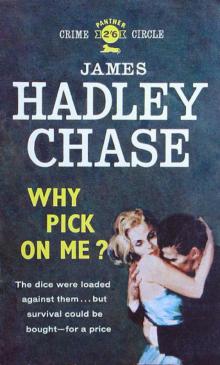 Why Pick On ME?
Why Pick On ME?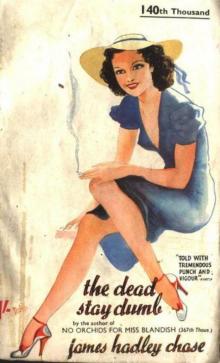 The Dead Stay Dumb
The Dead Stay Dumb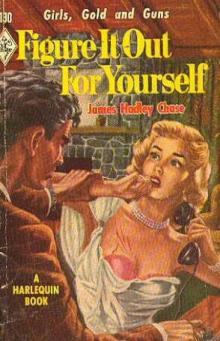 Figure it Out For Yourself
Figure it Out For Yourself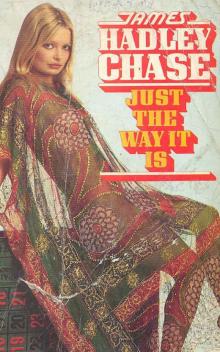 1944 - Just the Way It Is
1944 - Just the Way It Is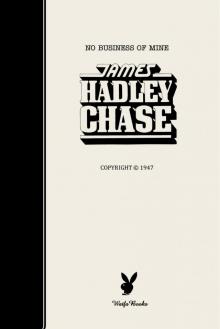 No Business Of Mine
No Business Of Mine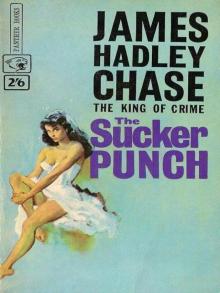 1953 - The Sucker Punch
1953 - The Sucker Punch Cade
Cade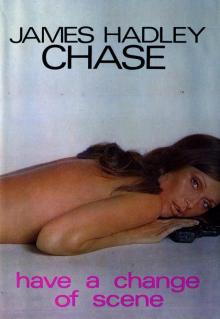 1973 - Have a Change of Scene
1973 - Have a Change of Scene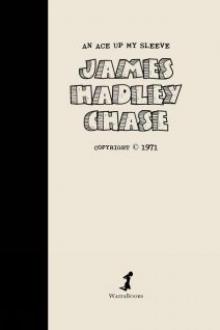 An Ace up my Sleeve
An Ace up my Sleeve 1968-An Ear to the Ground
1968-An Ear to the Ground 1950 - Figure it Out for Yourself
1950 - Figure it Out for Yourself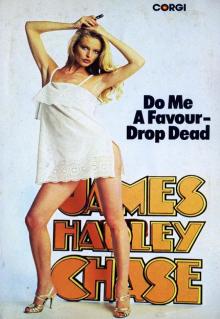 1976 - Do Me a Favour Drop Dead
1976 - Do Me a Favour Drop Dead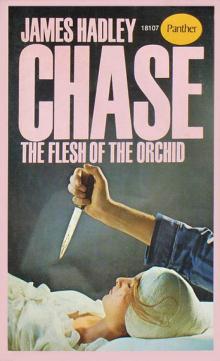 The Flesh of The Orchid
The Flesh of The Orchid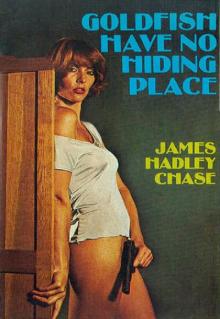 1974 - Goldfish Have No Hiding Place
1974 - Goldfish Have No Hiding Place Whiff of Money
Whiff of Money 1984 - Hit Them Where it Hurts
1984 - Hit Them Where it Hurts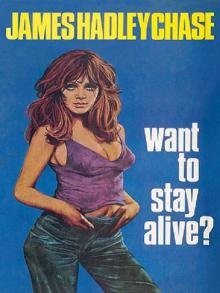 1971 - Want to Stay Alive
1971 - Want to Stay Alive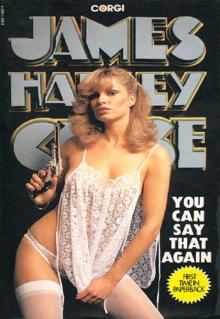 1980 - You Can Say That Again
1980 - You Can Say That Again 1978 - Consider Yourself Dead
1978 - Consider Yourself Dead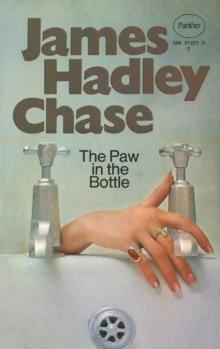 The Paw in The Bottle
The Paw in The Bottle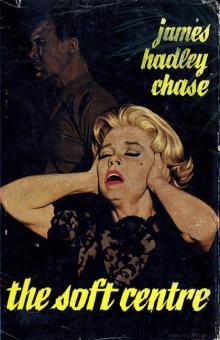 Soft Centre
Soft Centre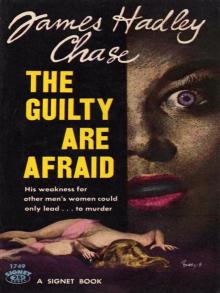 The Guilty Are Afraid
The Guilty Are Afraid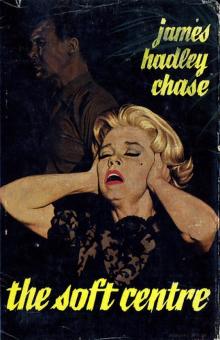 The Soft Centre
The Soft Centre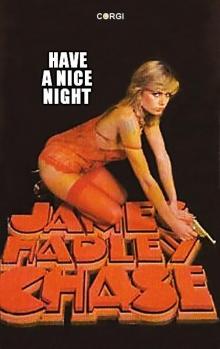 Have a Nice Night
Have a Nice Night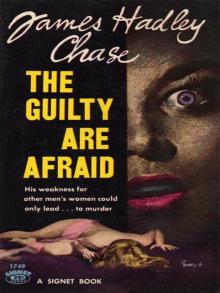 1957 - The Guilty Are Afraid
1957 - The Guilty Are Afraid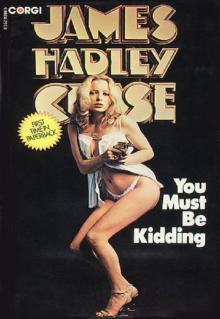 1979 - You Must Be Kidding
1979 - You Must Be Kidding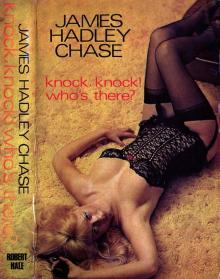 Knock, Knock! Who's There?
Knock, Knock! Who's There?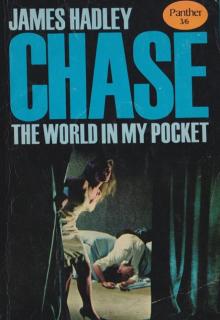 1958 - The World in My Pocket
1958 - The World in My Pocket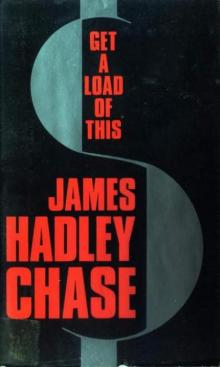 Get a Load of This
Get a Load of This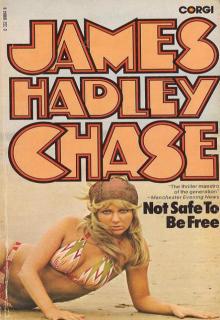 1958 - Not Safe to be Free
1958 - Not Safe to be Free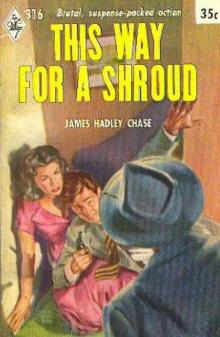 This Way for a Shroud
This Way for a Shroud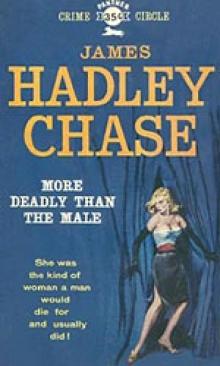 More Deadly Than the Male
More Deadly Than the Male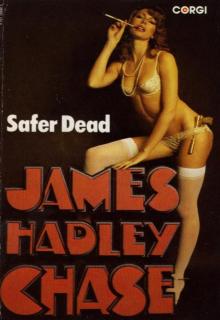 Safer Dead
Safer Dead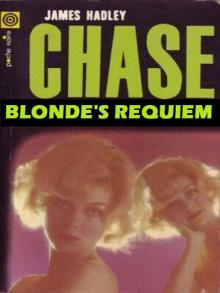 1945 - Blonde's Requiem
1945 - Blonde's Requiem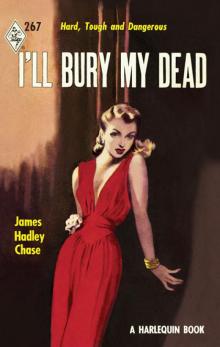 I'll Bury My Dead
I'll Bury My Dead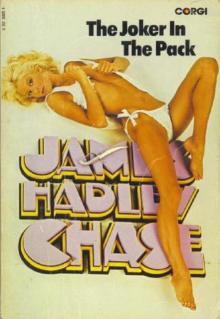 1975 - The Joker in the Pack
1975 - The Joker in the Pack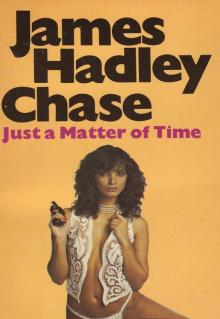 1972 - Just a Matter of Time
1972 - Just a Matter of Time 1954 - Mission to Venice
1954 - Mission to Venice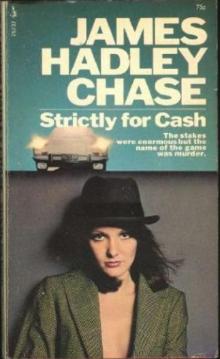 Strictly for Cash
Strictly for Cash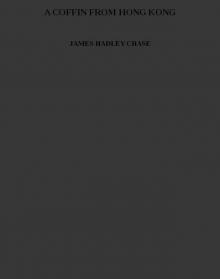 A COFFIN FROM HONG KONG
A COFFIN FROM HONG KONG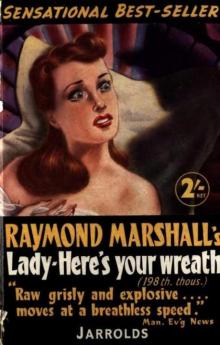 Lady—Here's Your Wreath
Lady—Here's Your Wreath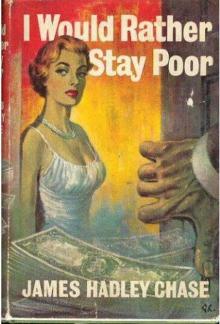 I Would Rather Stay Poor
I Would Rather Stay Poor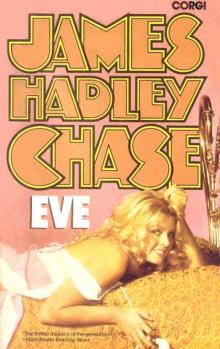 Eve
Eve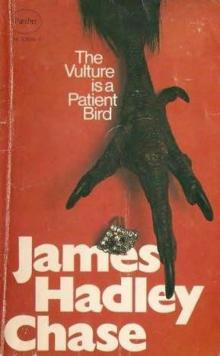 Vulture Is a Patient Bird
Vulture Is a Patient Bird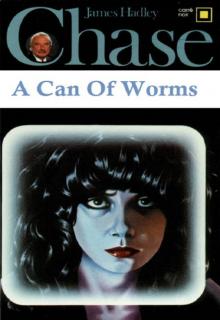 1979 - A Can of Worms
1979 - A Can of Worms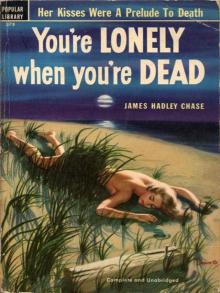 1949 - You're Lonely When You Dead
1949 - You're Lonely When You Dead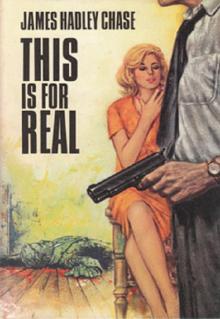 1965 - This is for Real
1965 - This is for Real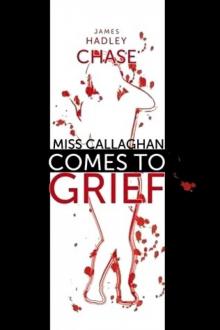 (1941) Miss Callaghan Comes To Grief
(1941) Miss Callaghan Comes To Grief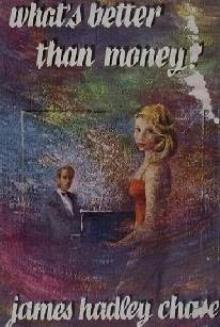 What`s Better Than Money
What`s Better Than Money This is For Real
This is For Real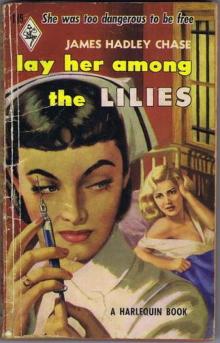 Lay Her Among the Lilies vm-2
Lay Her Among the Lilies vm-2 Knock Knock Whos There
Knock Knock Whos There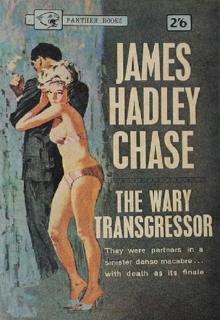 1952 - The Wary Transgressor
1952 - The Wary Transgressor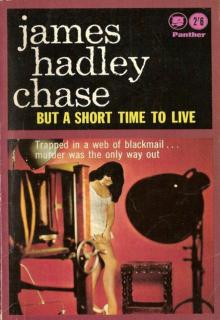 1951 - But a Short Time to Live
1951 - But a Short Time to Live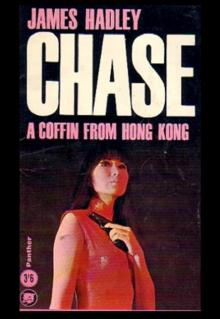 1962 - A Coffin From Hong Kong
1962 - A Coffin From Hong Kong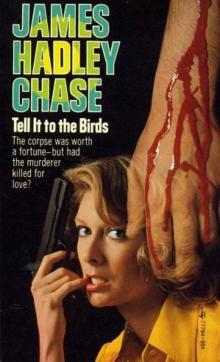 Tell It to the Birds
Tell It to the Birds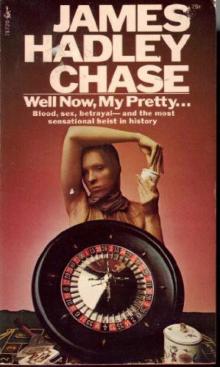 Well Now, My Pretty…
Well Now, My Pretty…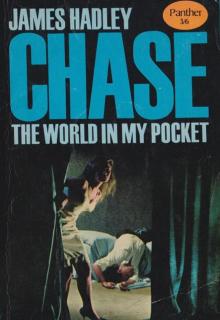 The World in My Pocket
The World in My Pocket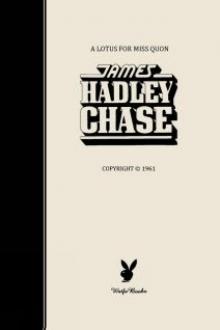 A Lotus for Miss Quon
A Lotus for Miss Quon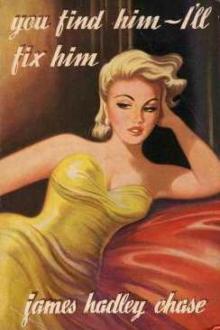 You Find Him, I'll Fix Him
You Find Him, I'll Fix Him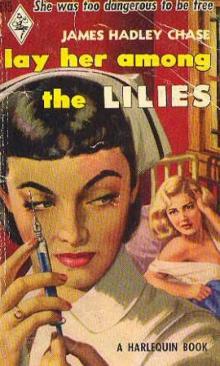 Lay Her Among The Lilies
Lay Her Among The Lilies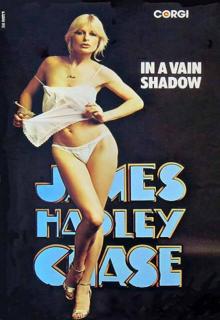 1951 - In a Vain Shadow
1951 - In a Vain Shadow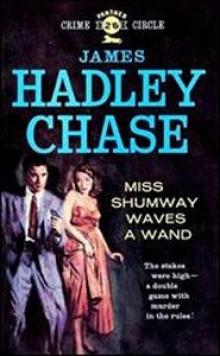 Miss Shumway Waves a Wand
Miss Shumway Waves a Wand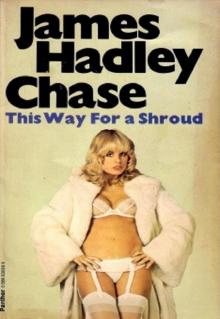 1953 - This Way for a Shroud
1953 - This Way for a Shroud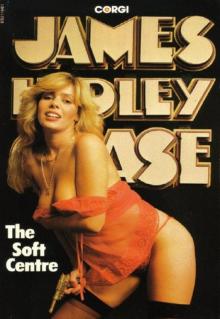 1964 - The Soft Centre
1964 - The Soft Centre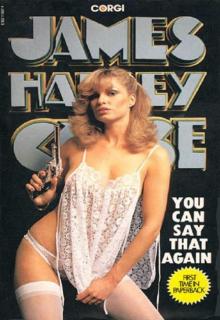 You Can Say That Again
You Can Say That Again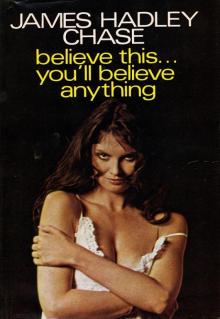 1975 - Believe This You'll Believe Anything
1975 - Believe This You'll Believe Anything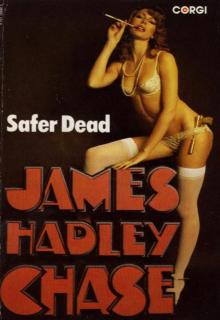 1954 - Safer Dead
1954 - Safer Dead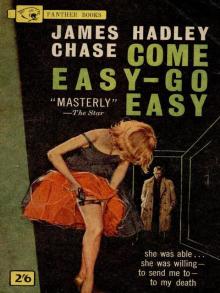 1960 - Come Easy, Go Easy
1960 - Come Easy, Go Easy Shock Treatment
Shock Treatment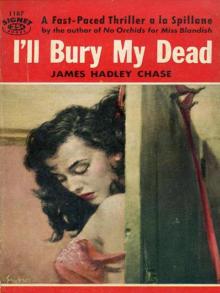 1953 - I'll Bury My Dead
1953 - I'll Bury My Dead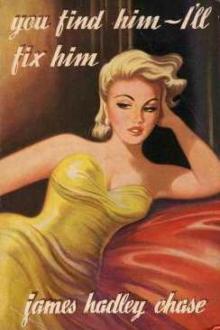 You Find Him – I'll Fix Him
You Find Him – I'll Fix Him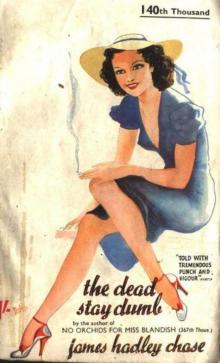 Dead Stay Dumb
Dead Stay Dumb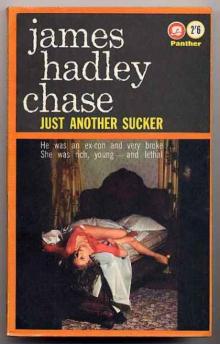 Just Another Sucker
Just Another Sucker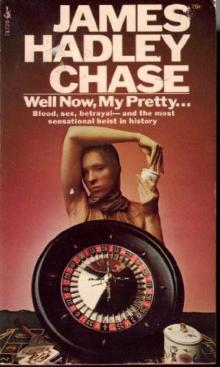 Well Now My Pretty
Well Now My Pretty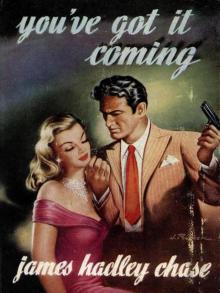 You've Got It Coming
You've Got It Coming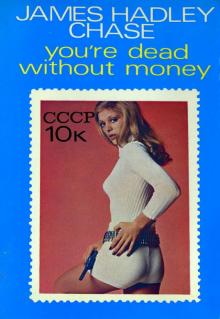 1972 - You're Dead Without Money
1972 - You're Dead Without Money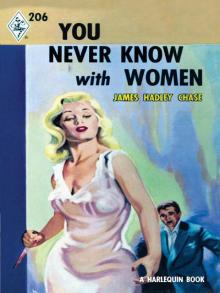 1955 - You Never Know With Women
1955 - You Never Know With Women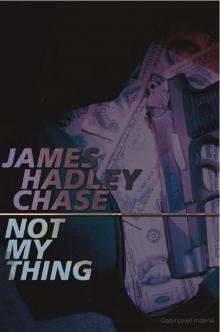 Not My Thing
Not My Thing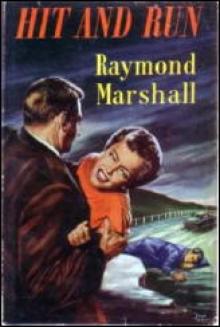 Hit and Run
Hit and Run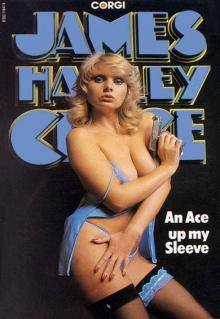 1971 - An Ace Up My Sleeve
1971 - An Ace Up My Sleeve 1970 - There's a Hippie on the Highway
1970 - There's a Hippie on the Highway 1968 - An Ear to the Ground
1968 - An Ear to the Ground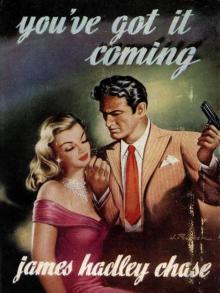 1955 - You've Got It Coming
1955 - You've Got It Coming 1963 - One Bright Summer Morning
1963 - One Bright Summer Morning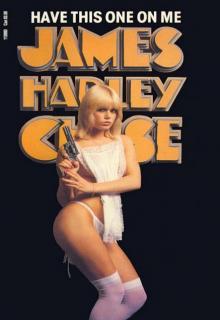 1967 - Have This One on Me
1967 - Have This One on Me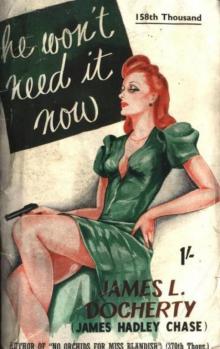 He Won't Need It Now
He Won't Need It Now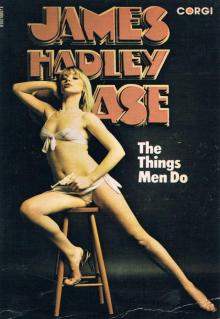 1953 - The Things Men Do
1953 - The Things Men Do Believed Violent
Believed Violent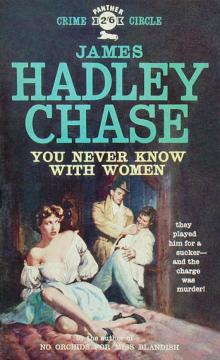 You Never Know With Women
You Never Know With Women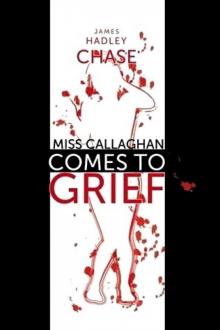 Miss Callaghan Comes to Grief
Miss Callaghan Comes to Grief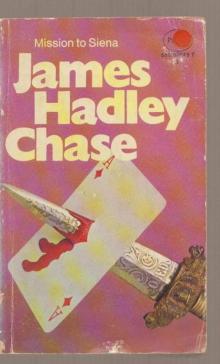 Mission to Siena
Mission to Siena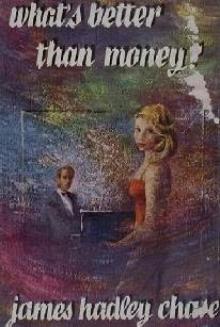 What's Better Than Money
What's Better Than Money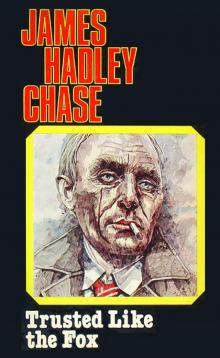 Trusted Like The Fox
Trusted Like The Fox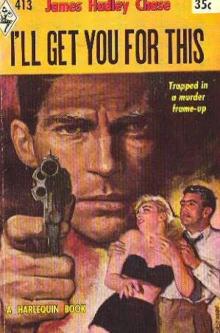 I'll Get You for This
I'll Get You for This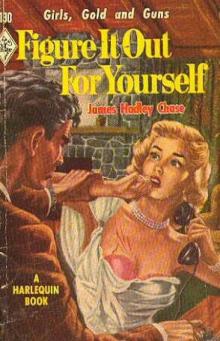 Figure It Out for Yourself vm-3
Figure It Out for Yourself vm-3 Like a Hole in the Head
Like a Hole in the Head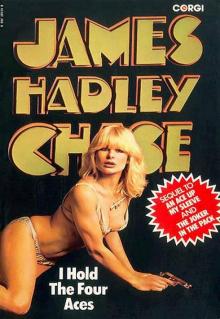 1977 - I Hold the Four Aces
1977 - I Hold the Four Aces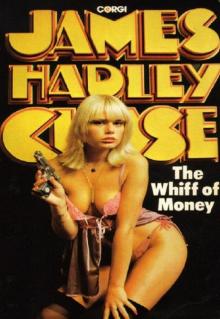 1969 - The Whiff of Money
1969 - The Whiff of Money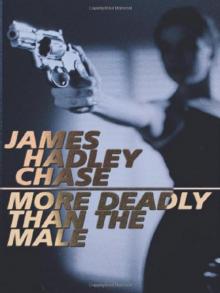 1946 - More Deadly than the Male
1946 - More Deadly than the Male 1956 - There's Always a Price Tag
1956 - There's Always a Price Tag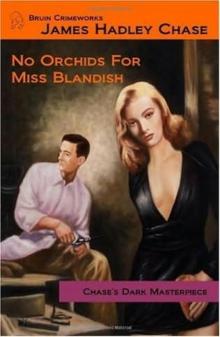 No Orchids for Miss Blandish
No Orchids for Miss Blandish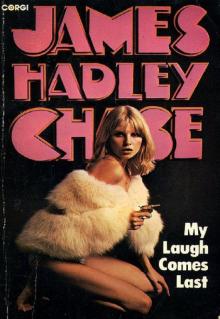 1977 - My Laugh Comes Last
1977 - My Laugh Comes Last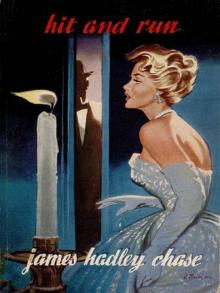 1958 - Hit and Run
1958 - Hit and Run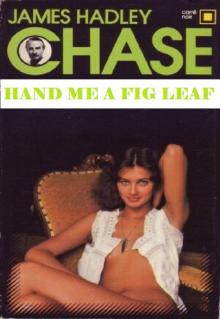 1981 - Hand Me a Fig Leaf
1981 - Hand Me a Fig Leaf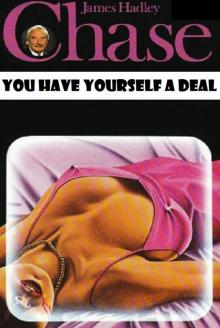 1966 - You Have Yourself a Deal
1966 - You Have Yourself a Deal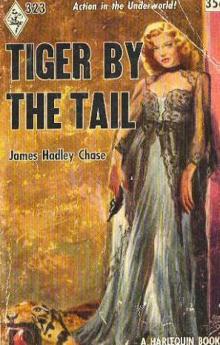 Tiger by the Tail
Tiger by the Tail